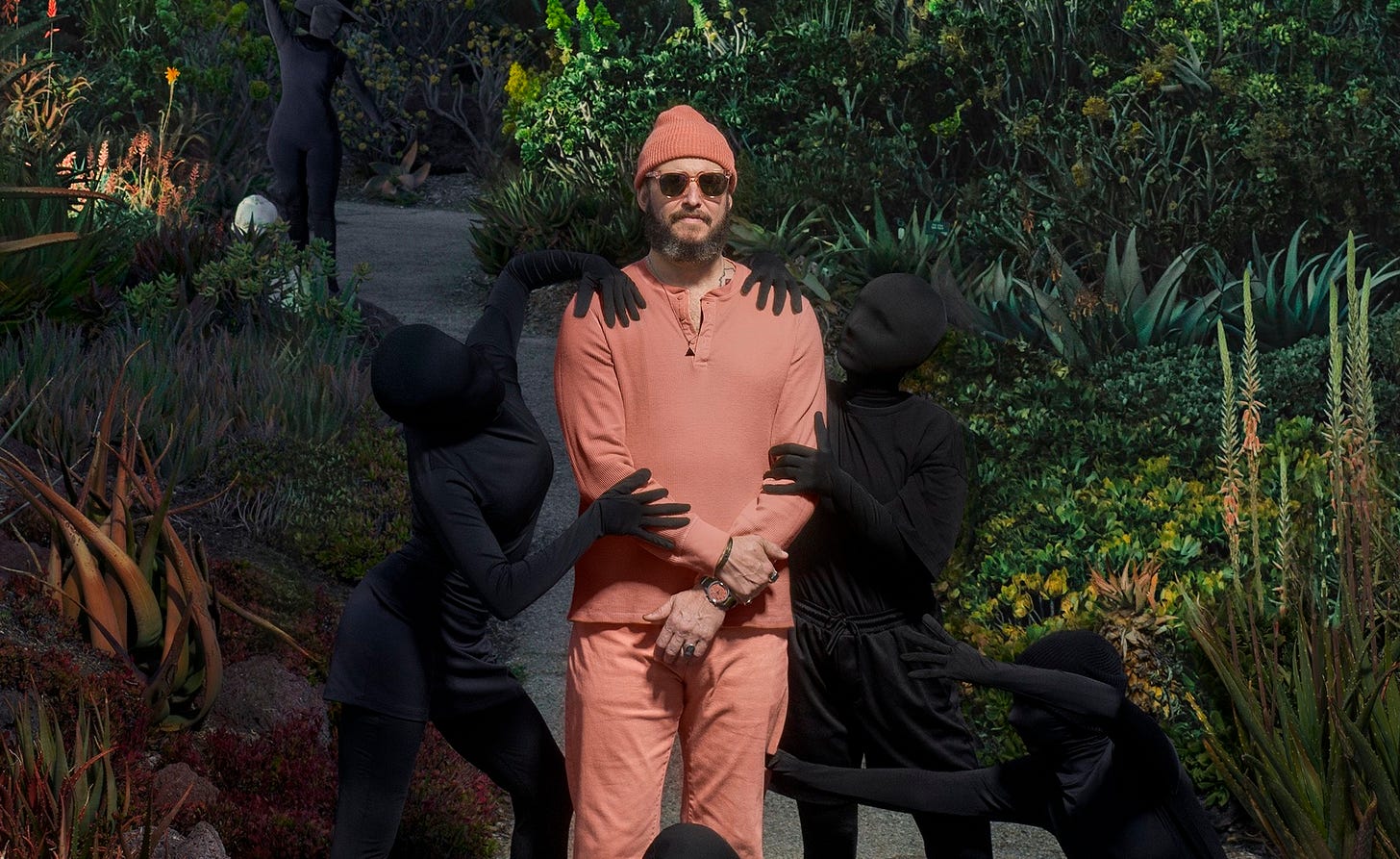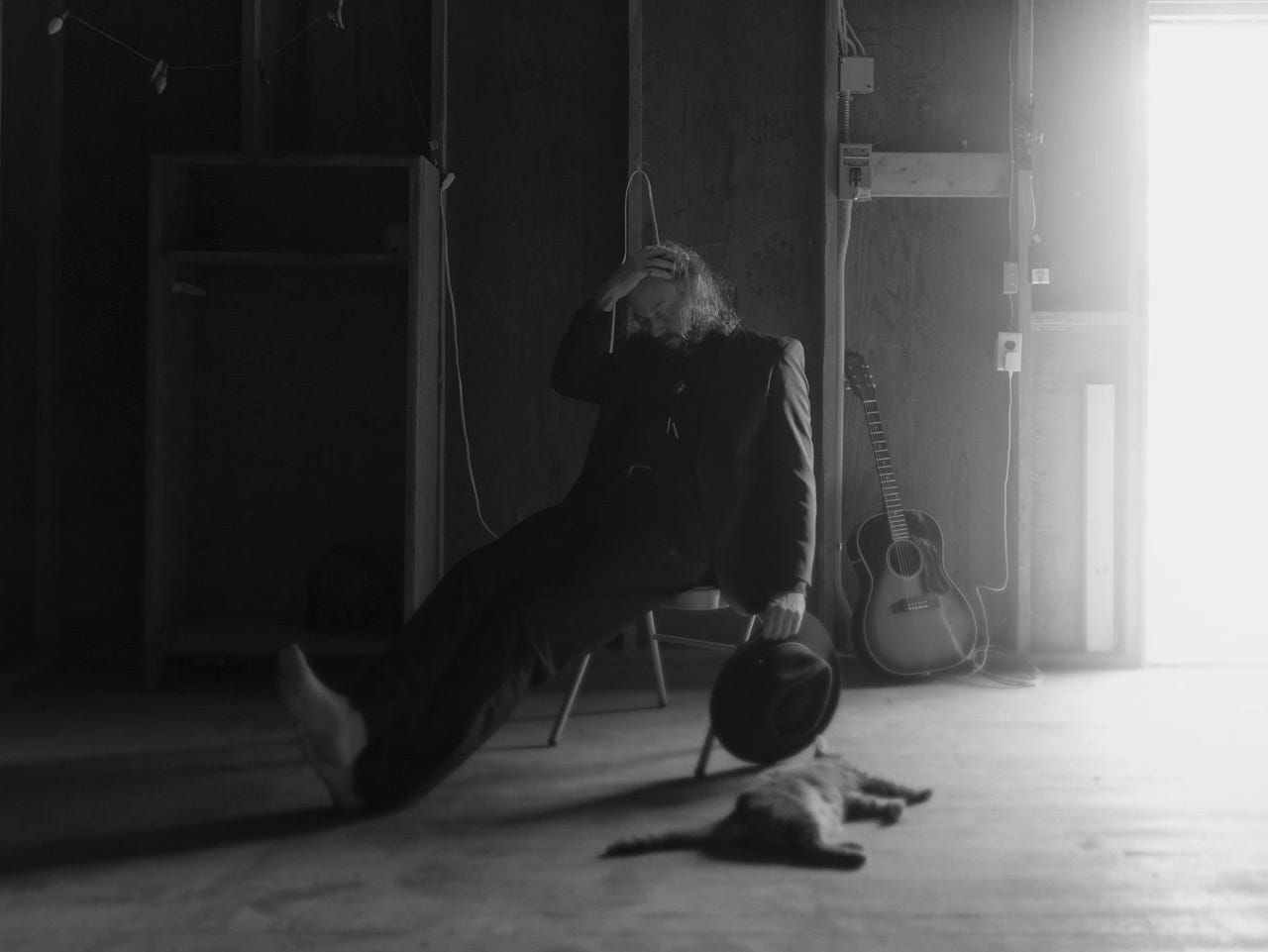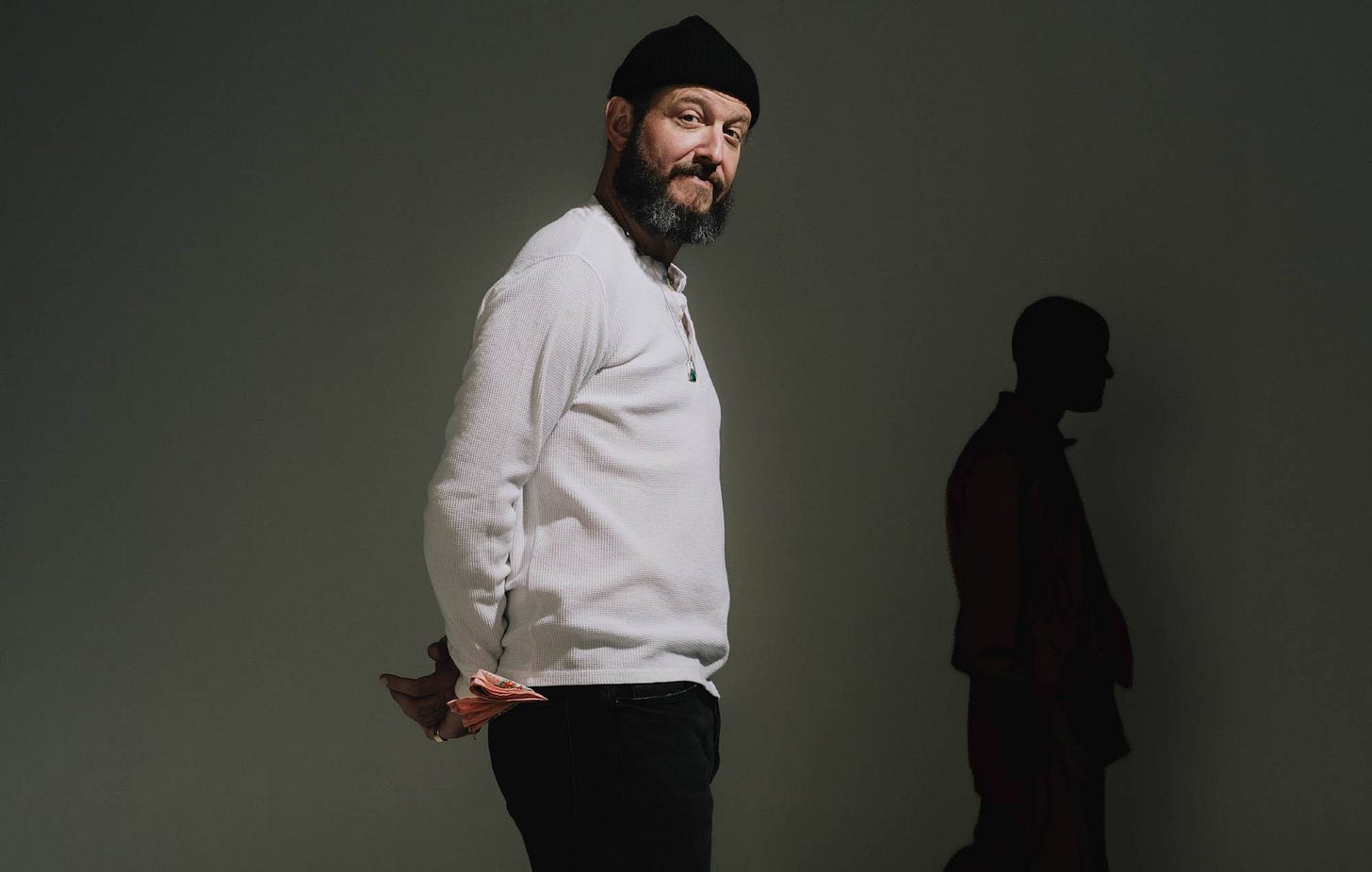It’s Not All Darkness
Why Bon Iver’s SABLE, fABLE is my Favorite Album of the Year (So Far)
I’ve never been to Eau Claire, Wisconsin, but I know it’s cold as hell. Ninety miles east of Minnesota’s Twin Cities, Eau Claire is where Bon Iver’s Justin Vernon has lived nearly his entire life. “I’ve had one home that I’ve known,” Vernon sings on “There’s A Rhythmn” from Bon Iver’s latest album, SABLE, fABLE. It’s this home where the lore of Bon Iver began.
I used to fall asleep to the collective’s debut album, For Emma, Forever Ago, but I didn’t know Vernon wrote and recorded it over the course of two months during the winter of 2006 and 2007 while living alone in his father’s hunting cabin in Eau Claire. Embracing the isolation, he hunted for his own food and relied on a wood-stove for warmth. Temperatures likely reached as low as 10 degrees Fahrenheit.
When Vernon finally dragged the recording equipment out of his car, he made songs that reflected the harsh conditions he was in. These tracks are intimate and haunting, and the emotional pain is palpable. He carried the melancholy of Bon Iver’s debut into their self-titled second album.
Even as Vernon expanded his experimentation on projects like 22, A Million and i,i, many listeners kept him in their minds as the sad guy who makes sad music—to the point where Vernon began to believe it. And as profitable as this persona has been for his career, it was also mentally and emotionally taxing. So much so that after spending the majority of his life and career in Eau Claire, Vernon pondered “maybe it’s time to go” as he does on “There’s A Rhythmn.”
Instead of staying close by or returning to Raleigh, North Carolina, where he and some bandmates moved earlier in his career, Vernon began making a life for himself in Los Angeles. While one could view this as Vernon selling out and becoming “Hollywood,” it was, in many ways, him remembering what the sun feels like. And what came from this moving on is Bon Iver’s happiest album yet—and likely my favorite album of the year.
Released earlier this Spring, SABLE, fABLE is Vernon finding love, testing its limits, and daring to feel something beyond darkness. The project begins with three songs that Bon Iver released last October as part of the SABLE, EP. These tracks are reminiscent of Bon Iver’s earliest music: acoustic-forward, sad-boy songs that helped cement Vernon as a mainstay in indie bookshops and coffeehouses. However, he doesn’t stay there.
Vernon closes out the three songs with “AWARDS SEASON” where he tells himself and us, the listeners: “You can be remade / You can live again.” This sets the stage for fABLE, which gives us a new look at Bon Iver’s frontman. There’s a childlike exuberance on “Everything Is Peaceful Love” where Vernon is so filled with joy that he doesn’t even realize he’s climbing up a tree. A few songs later, on “I’ll Be There,” he tells his beloved to “keep the sad shit off the phone and get your fine ass on the road.”
I wasn’t expecting a bright-eyed Bon Iver album or one that’s so sexy, but SABLE, fABLE has been a balm for me throughout this year, especially as I’m coming out of the darkness of the past decade—and even more specifically, the past few years. I don’t mean for that to come off as dramatic as it sounds, but the past 10 years have looked like me questioning my understanding of faith and politics. Questioning the systems that lie beneath my faith and politics.
I saw that what I’d been handed didn’t allow for my most loving, most compassionate, most understanding self—or the most loving, most compassionate, most understanding world. To question these things, to deconstruct and dismantle them, was dark and lonely.
I had people who walked alongside me on this journey—some of whom are still with me now—but that doesn’t negate the death, the faltering, that comes with breaking away from what I once knew. I had a community founded in the things I was willing to accept, but those people don’t stick around once you begin to reject these things.
You can’t return to the same places—the same church service, the same headlines—and not feel critical. You can’t not question it. The light you once felt in these spaces is now clouded by darkness. And that’s not to say, I regret leaving these environments or that I regret learning what I’ve learned. But it is to acknowledge that leaving also requires grieving. It is a loss; it is heartbreaking. If ignorance is bliss, then knowing is gut-wrenching.
As I began giving myself permission to feel the hurt, I was able to accept, as Vernon does on “AWARDS SEASON,” that “nothing stays the same.” And still, what remains are the ways my past has shaped me. I learned to honor this past and welcome where I am now. To recognize that “January ain’t the whole world.” It’s not all death and disaster; anger and annihilation. I can feel the sun again. This isn’t a blindness to the world’s horrors. Deepening my capacity for joy and empathy expands my capacity for care; it helps me see how my flourishing is intertwined with our flourishing.
Even while Vernon basks in the sun, hoping to keep his lover for as long as they’ll allow, there’s the possibility of loss. The chance of them walking away. But he maintains gratitude for what they meant to him.
“It might not matter whether we’re together or not because you changed me for the better,” Vernon told The Guardian. “We shouldn’t squander what didn’t happen. We should just be thankful for what we do have.”
What I do have, and what I have had, are people who love me. My wife. My parents. Homies who hold me close. Even when I was in the midst of dread, even as I reckon with what it means to be alive at a time where fascism grasps for dear life toward anything it can get its hands on, my people are a constant.
When I listen to SABLE, fABLE, I feel their love. Songs like “Walk Home” and “Day One” remind me that there are good things to come home to, that are worth coming home to and being good for.
I don’t want to be so mired in cynicism and clouds of my own making that I can’t show up for me or my people. I hear Vernon speak to this in “THINGS BEHIND THINGS BEHIND THINGS.” There are so many horrors, so many places where I can get stuck and lose all will to live, but I’m worth being here. As long as I have the privilege, it’s imperative that I stick my head out every once in a while and remember that there’s more than just my own doom spiral. There’s life beyond the cabin.
There’s the sable—this deep, cavernous darkness—and there’s also the joy amid that darkness. It might look like Palestinian girls skateboarding among the rubble in Gaza or Sudanese children making their own clay action figures. It could also be as close to home as trekking through a corn maze with my friends, making the most of the little shade we can find.
In his essay collection, Inciting Joy, Ross Gay asks, “What if joy and pain are fundamentally tangled up with one another?” He continues, “Or even more to the point, what if joy is not only entangled with pain, or suffering, or sorrow, but is also what emerges from how we care for each other through those things?”
In other words, we deepen our capacity for joy, we expand our ability to love, by helping each other through our hurt, by walking each other toward freedom. This begins with believing freedom is not only necessary but possible. The beginning is a return—a coming back around to Vernon’s earlier affirmation: “You can be remade / You can live again.”
I’ve never been to Eau Claire, but having been to Los Angeles a handful of times, I know how deeply my midwestern soul needs the sun. I also know the rhythm or “rhythmn” Vernon observed requires seasons, so I wouldn’t be surprised if Bon Iver’s next album brings them back to Wisconsin where winters carry an unforgiving tune. At least it’s home.
Thank you!
I appreciate you reading! If you enjoyed, please share it with someone special.
Was this forwarded to you? Sign up here to receive my next newsletter directly in your inbox.
Support the newsletter: If you’d like to support my work, consider becoming a Paid subscriber to Feels Like Home or buying me a coffee.
Stay connected: For more content and updates, follow me on Substack, Instagram and Threads.





This is a beautiful writeup. I felt that bit about deconstruction (I had a bit of a head start on you with that, but I have definitely gone through the stages). SABLE fABLE is probably Vernon's best project to date, and he's been consistently releasing gems.
that choice of image to go with this essay is magically creative.
how much time did you spend to come up with the right one to go with it?